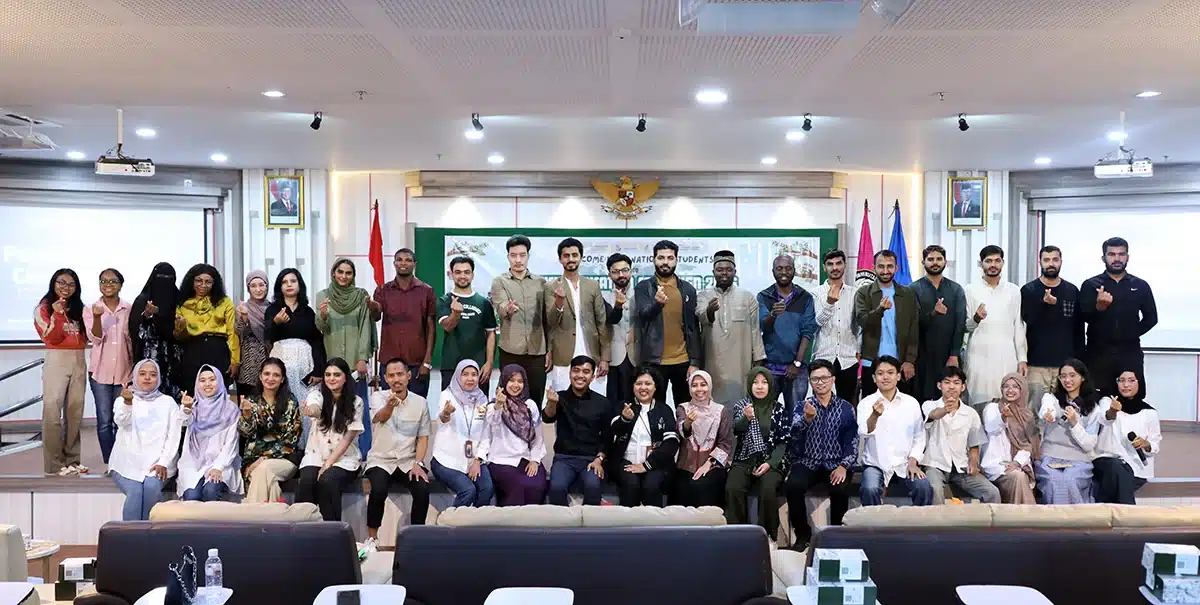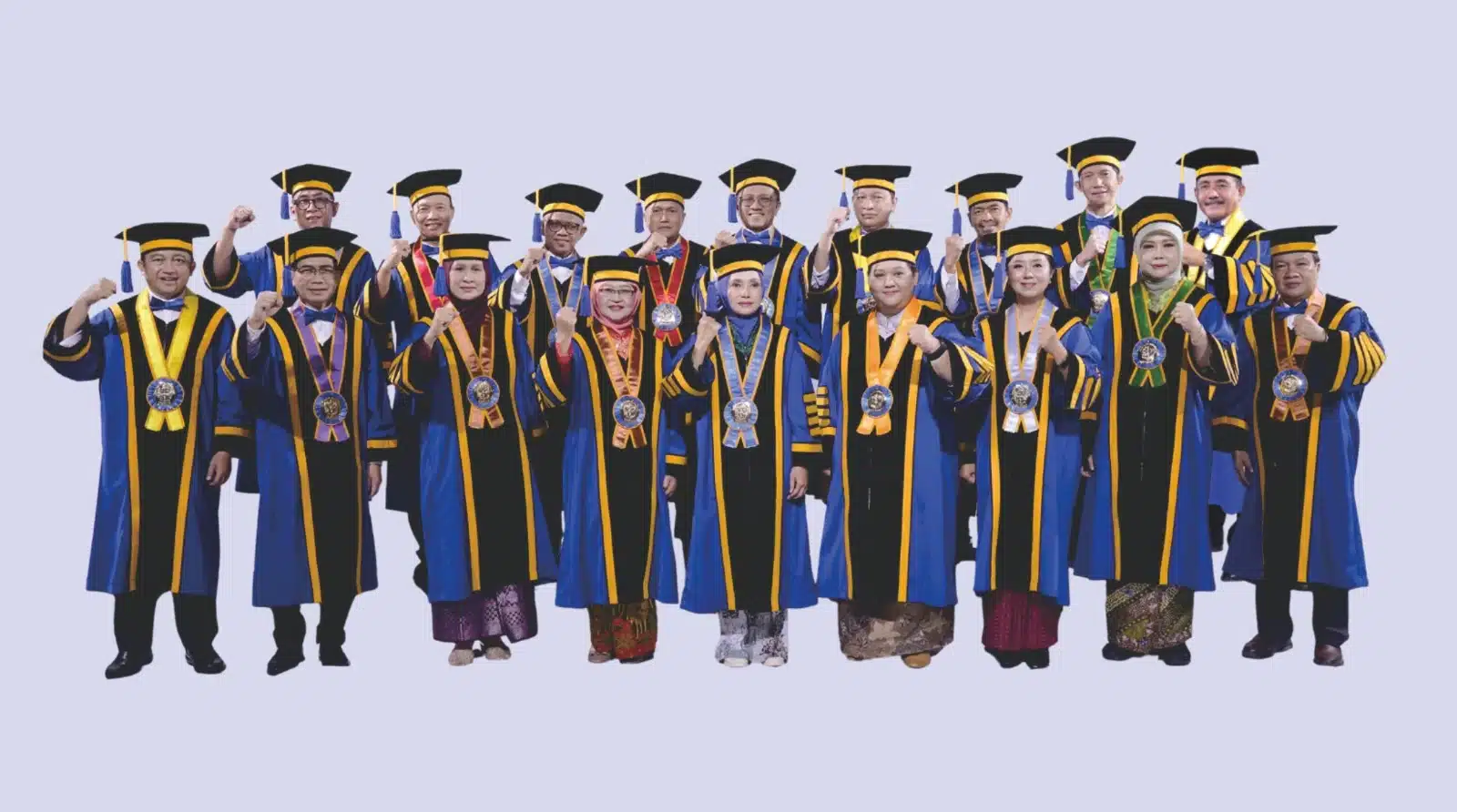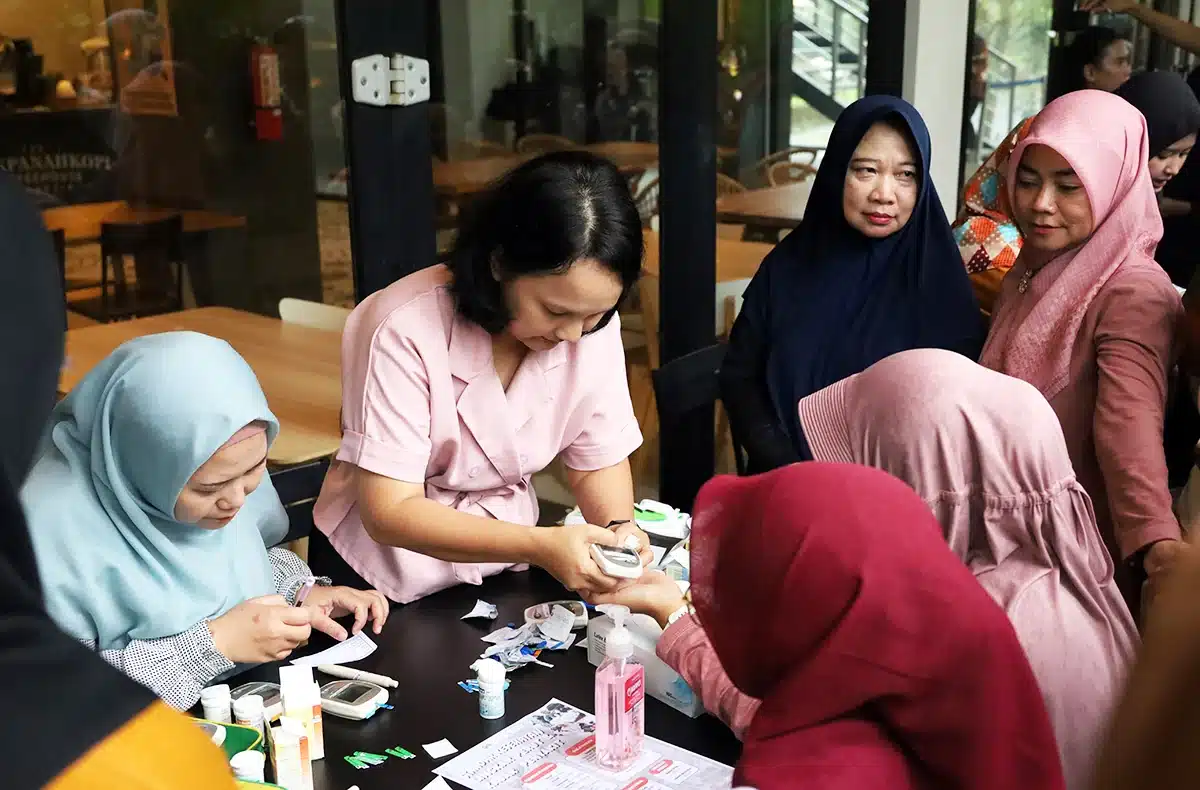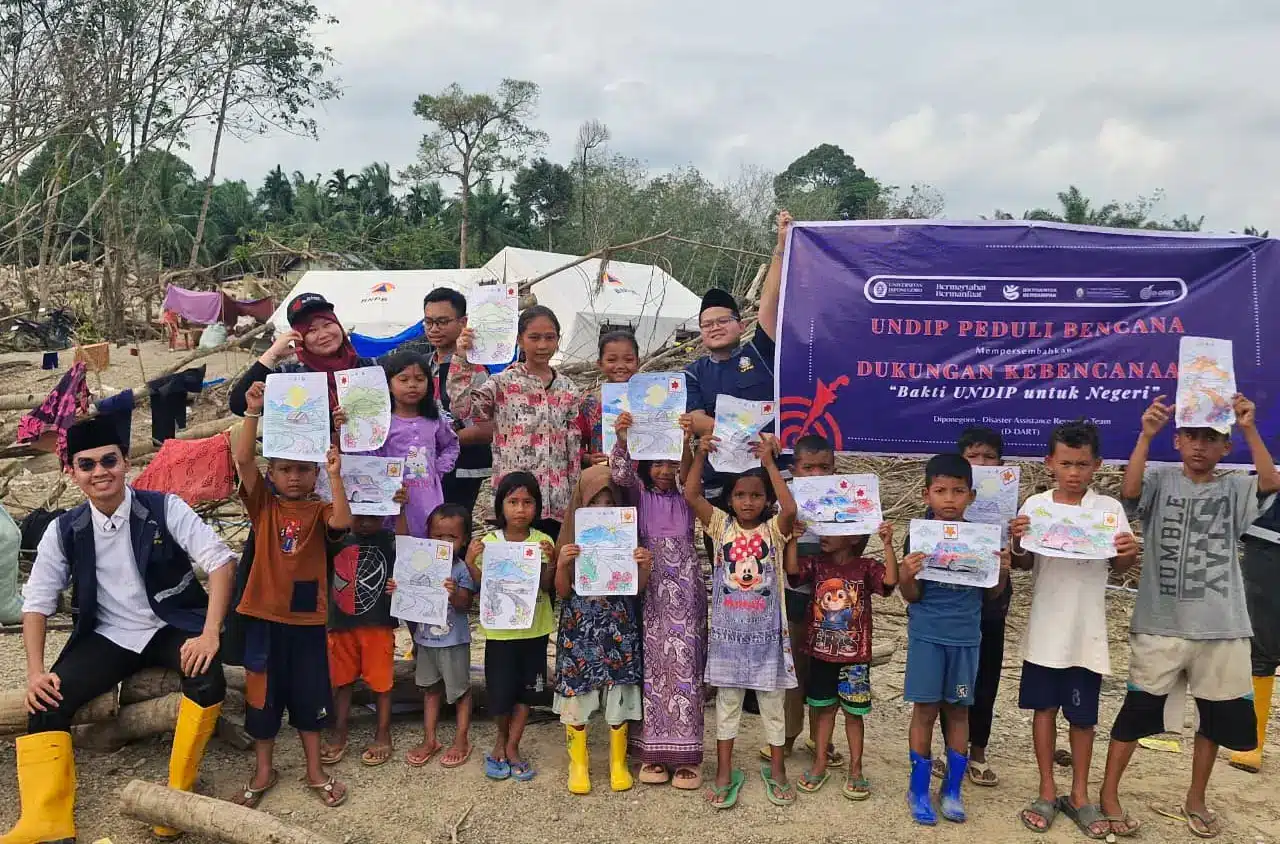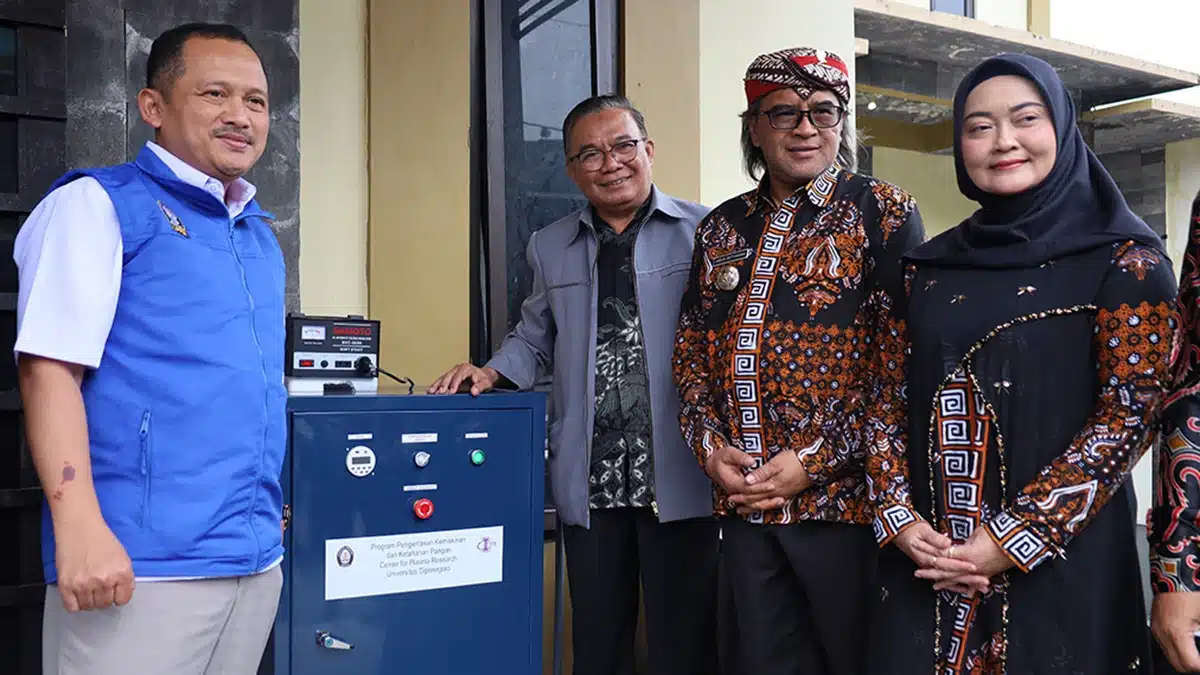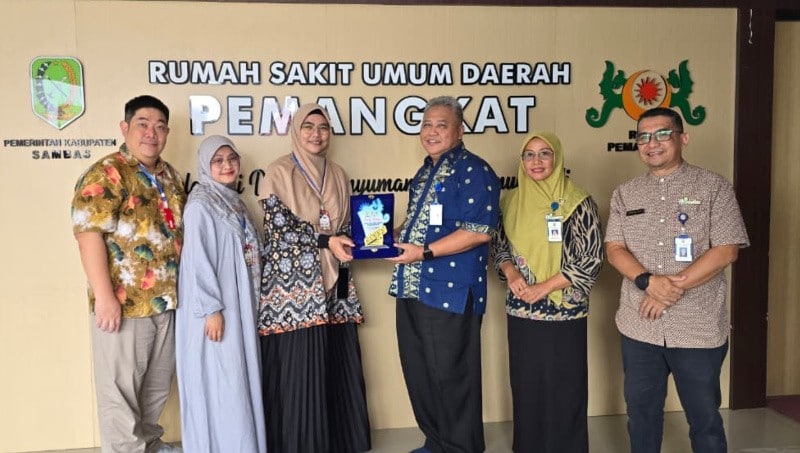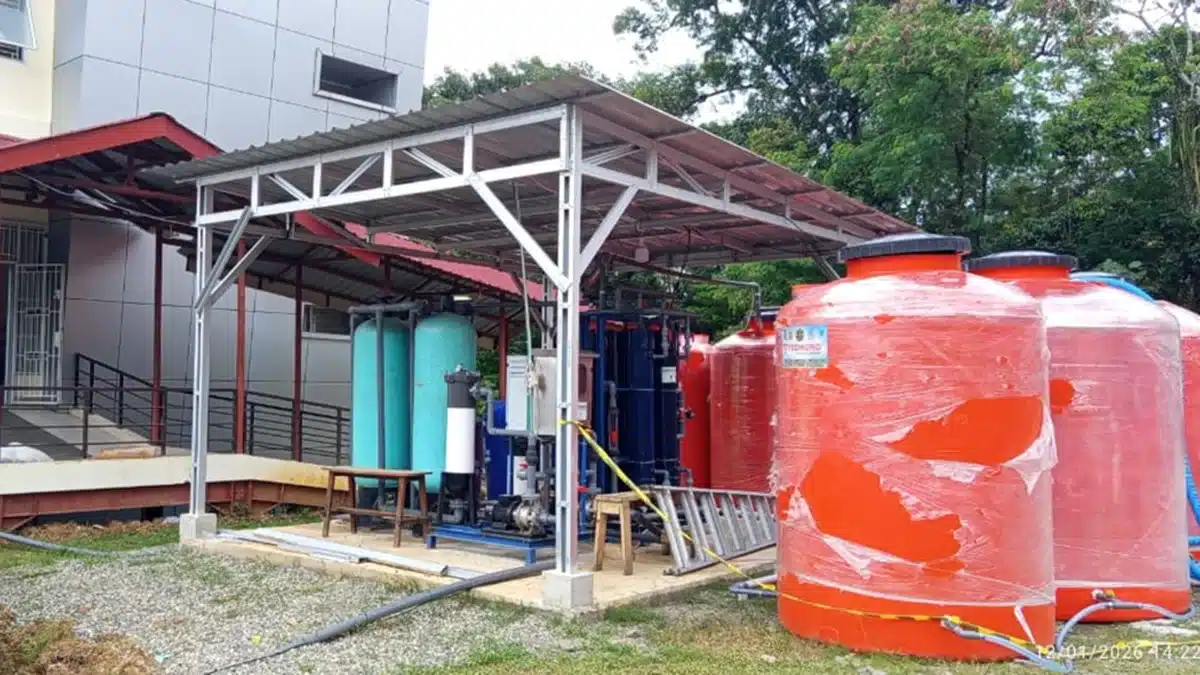SEMARANG – The Indonesian Literature Study Program of Faculty of Humanities of Diponegoro University (Undip) invited competent cultural experts to examine the implications of post-pandemic culture. The study that was packaged in the webinar entitled “Cultural Management: Language, Literature and Post-Pandemic Culture” was discussed with some experts namely Dr. Seno Gumira Ajidarma, M. Hum, a writer who also serves as Rector of Jakarta Arts Institute (IKJ); Dr. Ken Widyawati, M. Hum., lecturer of Faculty of Humanities Undip; and Dr. Krisprantono, M.A., lecturer of Unika Soegijapranata.
The first resource person, Dr. Ken Widyawati, M.Hum explained that the Covid-19 pandemic has changed socio-cultural values which have implications for changes in various fields. Among them are changes in people’s mindset, attitude, and behavior regarding health. Now there are new habits and culture of wearing masks, washing hands, keeping a distance, not making a crowd, limiting the number of people in places of worship, using hand sanitizers, implementing WFH (Work From Home), and conducting online learning.
According to Dr. Ken, this condition makes the relationship of human as social beings eroded and shifts to new values of life. “Post-pandemic socio-cultural creativity emerged, such as how to respond to the concept of a new cultural order which turn into creativity through virtual media to maintain cultural sustainability. The implementation of traditions and rituals also uses new methods, including performing arts. Another lifestyle that becomes trend is the community consuming spices again,” she explained.
Another resource person, Dr. Seno Gumira Ajidarma, M.Hum., tried to connect cultural understanding with post-pandemic changes. Culture as a practice which has a lot of meanings is a connection of meanings which we share and contradict.
According to him, culture is marked by the struggle to articulate, inarticulate and re-articulate certain meanings, ideologies and politics. “In postmodern culture, we no longer recognize the distinction between high and popular culture,” he said.
In this forum, Dr. Seno mentioned three concepts of identity to understand reality. The first is that identity is formulated as a form of production, not a fixed and permanent essence so that this identity is always processing and forming inside the representation.
Second, identity politics where identity is a part of cultural politics is concerned with the power to give names and make certain meaningful descriptions. The representation of identity becomes political because it is a question of power as a form of social regulation that becomes self-production that allows one type of identity to exist while denying another.
Third, the identity of idea is a project that refers to the creation of a self-identity narrative that continues to connect the past, present, and future. Although it is limited by relatively static and ethnically homogeneous groups, the spaces and places in everyday life are very pluralistic.
Plural life causes a struggle for the imposition of meaning and is permanently reaffirmed through the process of relocation and cultural hybridization. As a consequence, the local population in a certain place becomes more multi-ethnic and multicultural. Their physical areas are increasingly crossed and accepting more temporary groups, such as tourists so that the identity of the place will be increasingly fragmented.
Dr. Seno reminded that plural identity can be a source of wealth as well as a source of conflict, whether we realize it or not, is a praxis of human identity politics in building their own living space through language. In communicating there is identity politics; not because an individual shows who he is when speaking, but because in language all the discourses have lived and worked so that it becomes a comfortable space to fulfill their interests.
Unika Soegijapranata Lecturer, Dr. Krisprantono, M.A., revealed how necessary it is to bring back memories of our nation’s past cultural journey as a basis for understanding changes of times. It is said that the site of the sugar factory and the old cities are memories from industrial revolution that swept Europe in the 19th century affected Indonesia, which at that time was still known as the Dutch East Indies.
Dr. Krisprantono told how Prometheus came to Java Island in the form of steam engine technology, steel, and giant capital, so that in less than a hundred years Java Island became the largest sugar supplier in the world after Cuba. The process of transformation on the Java Island is interesting to observe, because here slaves have never been the driving force for economic development. Therefore, when the capital forces from Europe wanted to follow the success of the VOC on the Java coast by building a large workforce-based industrial area, they failed when they started.
Head of the Indonesian Literature Study Program of Faculty of Humanities Undip, Dr. Sukarjo Waluyo, S.S., M.Hum., said that the cultural management webinar which he organized is a routine program that has been and will always be scheduled. The event is carried out to discuss important issues by presenting scientists with national and international reputations.
When contacted by the PR team on Thursday (11/11/2021), Dr. Sukarjo hoped that the activities initiated by the Indonesian Literature Study Program could help the participants to understand new relevant issues. “This activity is carried out to build a broader perspective in responding to the dynamics of socio-cultural issues which happen dynamically and very quickly,” he said. (PR team)


